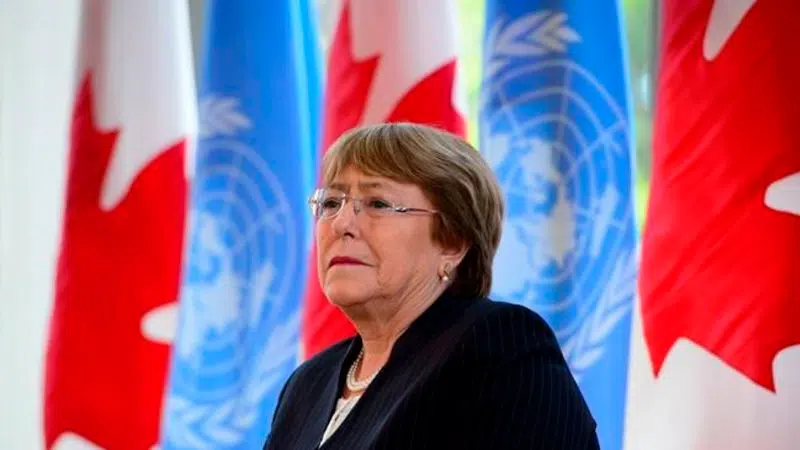
UN high commissioner urges redress as Canada responds to MMIWG inquiry
OTTAWA — Canada’s response to the conclusions of the inquiry into missing and murdered Indigenous women and girls should include some form of redress for the victims and their families, says the United Nations High Commissioner for Human Rights.
Michelle Bachelet, who spent the day meeting with Prime Minister Justin Trudeau and Foreign Affairs Minister Chrystia Freeland, acknowledged Monday that she hasn’t read the full final report from the national inquiry, which was released earlier this month.
But she said the government’s plan should identify and implement some sort of recompense for the Indigenous women, girls, LGBTQ and two-spirit people who have been directly impacted by the long-standing tragedy.
“We always try to support the families of the victims and to give them redress,” Bachelet said, noting that other countries facing similar situations have approached the problem in different ways.

